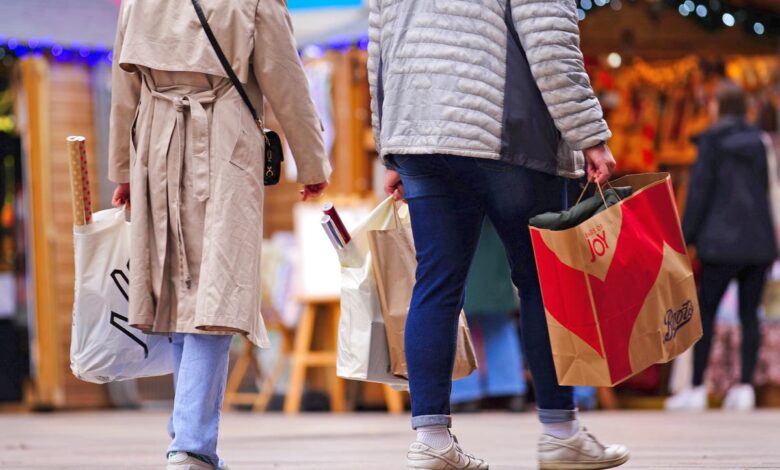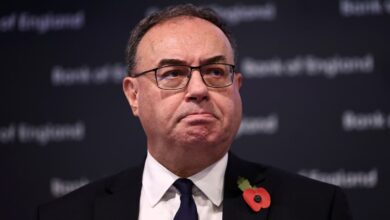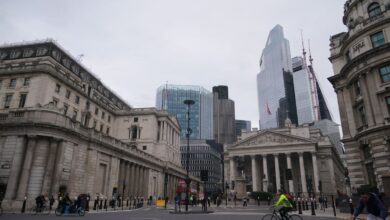Retail sales plummet across UK as cost-of-living crisis bites

Online sales took a heavy hit last month, with shoppers reining in unnecessary purchases as the cost-of-living crisis started to bite, according to official figures.
The Office for National Statistics (ONS) said sales volumes fell 1.4 per cent in March – faster than the 0.5 per cent drop in February – although they remain 2.2 per cent above pre-Covid levels of February 2020.
Online sales bore the brunt, dropping 7.9 per cent in the month – following on from a 6.9 per cent fall in February.
The ONS also revealed a decrease in fuel sales volumes of 3.8 per cent as soaring petrol and diesel costs put motorists off making unnecessary journeys, the ONS added.
The only part of the retail landscape to see an increase in sales was in non-food stores, which were up 1.3 per cent, driven by a 2.6 per cent rise at household goods retailers including garden centres and DIY stores.
ONS director of economic statistics Darren Morgan said: “Retail sales fell back notably in March, with rises in the cost of living hitting consumers’ spending.
“Online sales were hit particularly hard due to lower levels of discretionary spending.
“Fuel sales also fell substantially, with evidence suggesting some people reduced non-essential journeys, following record high petrol prices, while food sales continued to fall, dropping for the fifth consecutive month.”
The ONS suggested that the fall in online sales could be due to the end of lockdown restrictions and shoppers feeling confident returning to stores, when compared with December and January as the Omicron variant of coronavirus ran rampant.
It also warned that “some of the fall in February and March 2022 may also be linked to affordability concerns” and pointed out that recent surveys found 54 per cent of adults reported spending less on non-essentials due to an increase in the cost of living.
Food store sales volumes fell 1.1 per cent over the month, with households cutting back on excessive food purchases due to cost-of-living concerns.
The ONS added that the decrease was also due to more shoppers preferring to spend their cash on eating out and socialising due to Covid-19 restrictions coming to an end.
Economists and analysts suggested more falls could be on the way, as consumer confidence takes a knock.
Samuel Tombs, chief UK economist at Pantheon Macroeconomics, said: “March’s substantial fall in retail sales volumes looks like the start of a period of weakness in consumers’ spending, rather than just a blip.”
He added that this probably means a future Bank of England base rate rise is likely to be less than first thought.
Lisa Hooker, consumer markets leader at PwC, said: “Whilst we believe there will continue to be pent-up demand for certain categories as we plan for summer and a return to holidays, the squeeze on incomes will impact spending.
“We are already seeing consumers adopt coping mechanisms to deal with the squeeze in incomes, such as seeking value and trading down.”
She added: “We have also seen more resilience in spending across the older age groups, maybe reflecting that they were less impacted through lockdown in terms of finances but also are likely to be helping out their families.”
Oliver Vernon-Harcourt, head of retail at Deloitte, said: “The next few months will see further disruptions to supply chains and cost pressures.
Consumers face even more challenges as the energy price cap rose to a record high this month





